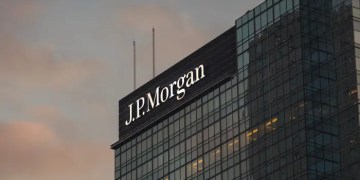Key Takeaways:
Powered by lumidawealth.com
• European leveraged loan market sees busiest start since 2017
• Lenders intensifying scrutiny of borrowers’ tariff exposure
• Companies accelerating refinancing ahead of January 20 inauguration
• Market fears potential 20% levy on all imports, 60% on Chinese goods
What Happened?
European companies are rushing to secure financing deals before Trump’s inauguration, driven by fears of impending tariffs. The leveraged loan market has seen unprecedented activity, with 19 of 28 recent deals being repricings. Lenders are conducting extensive due diligence on borrowers’ tariff exposure, particularly in sectors like auto parts, metals, and medical supplies. Companies like Hunter Douglas faced intense scrutiny during refinancing calls, with discussions extending well beyond normal durations.
Why It Matters?
The market reaction signals serious concerns about Trump’s trade policies’ impact on global financing conditions. The rush to refinance reflects fears that tariffs could significantly affect borrowing costs and company valuations, particularly for European firms dependent on US markets. The situation is creating a two-tier market dynamic, potentially benefiting US high-yield companies while pressuring European counterparts.
What’s Next?
Key areas to monitor include:
- Immediate post-inauguration tariff announcements
- Impact on inflation and Federal Reserve policy
- Sector-specific exposure and pricing adjustments
- Portfolio shifts toward domestic US industries
- European high-yield market stability
Investors are already repositioning portfolios, reducing exposure to vulnerable sectors like automotive and chemicals while increasing allocation to domestic US industries. The broader implications for credit markets could be significant, especially if aggressive tariffs trigger inflationary pressures and higher borrowing costs.
















